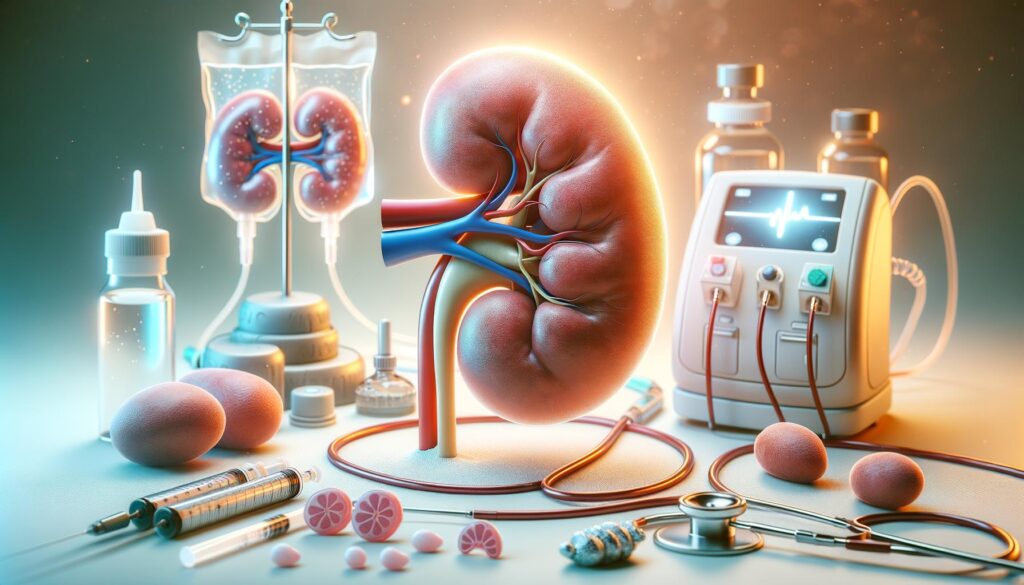Exploring Kidney Treatments: Understanding Your Options

Understanding the Function of Kidneys
Kidneys are remarkable organs responsible for filtering waste products and excess fluids from the blood, ensuring that our body’s chemical balance is maintained. These bean-shaped organs are located on either side of the spine, just below the rib cage. By removing toxins and maintaining salt, potassium, and acid levels, kidneys play a pivotal role in our body’s health and function. Additionally, they produce hormones that regulate blood pressure and control the production of red blood cells. Understanding their function helps us appreciate the importance of keeping them healthy and how their dysfunction can lead to severe complications.
Common Kidney Problems
Kidneys can face a range of issues, with chronic kidney disease (CKD) being among the most common. CKD is a gradual loss of kidney function over time. It can go unnoticed for years as its early stages are often asymptomatic. Other common kidney problems include kidney stones, acute kidney injury (often due to infection or trauma), and polycystic kidney disease. Symptoms of kidney issues may include fatigue, swelling in feet and ankles, persistent itching, and changes in urination. Recognizing these symptoms early helps in adopting preventive measures and seeking timely medical intervention.
Treatment Options for Kidney Diseases
While prevention is always better than cure, treatment options for kidney diseases have advanced tremendously. Depending on the condition’s severity and type, options include:
- Medication: To manage symptoms or slow the progression of kidney disease.
- Dialysis: A process where a machine filters and purifies the blood, mimicking the kidneys’ function.
- Lifestyle Changes: Includes a balanced diet, regular exercise, and avoiding substances harmful to kidneys.
- Surgery: In cases such as kidney stones, where removal is necessary.
Each treatment approach is tailored to the individual’s specific condition and overall health.
Living with Kidney Disease
Managing kidney disease requires a collaborative approach between patients and healthcare providers. Chronic conditions require careful monitoring of kidney function and adherence to treatment plans. Patients are encouraged to maintain a healthy lifestyle, including controlling blood pressure and blood sugar levels, which are fundamental to slowing disease progression. Support groups and counseling can also be beneficial, offering emotional support and practical advice. It is also crucial for patients to have regular check-ups with their healthcare providers to monitor their condition closely and make necessary adjustments to their treatment plan.
Future of Kidney Treatments
Medical advancements continue to improve kidney disease outcomes, with research exploring innovative treatment options such as regenerative techniques and gene therapy. Recent developments in telemedicine provide patients with easier access to medical professionals, making remote monitoring and consultation more feasible. Additionally, wearable technology can track vital health metrics, providing crucial data for personalized treatment plans. As these technologies evolve, they promise to offer patients better management tools and possibly improve their quality of life.
Conclusion: Prioritizing Kidney Health
Kidney health is vital for overall well-being. By understanding kidney function and available treatment options, individuals can take proactive steps in managing their health. Early detection and treatment are key to preventing the progression of kidney diseases and maintaining optimal health. For anyone facing kidney-related issues, staying informed and actively engaging with healthcare providers will ensure the best possible outcomes. Prioritizing kidney health through lifestyle changes and regular medical check-ups will go a long way in sustaining overall wellness.
